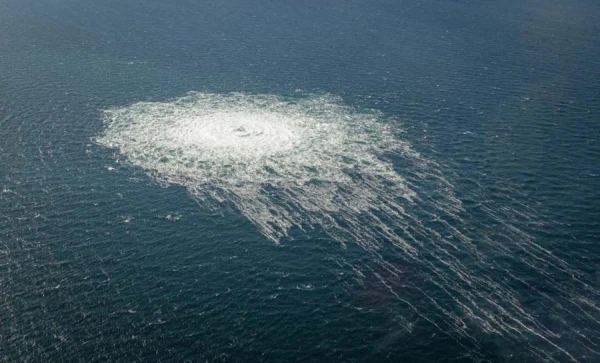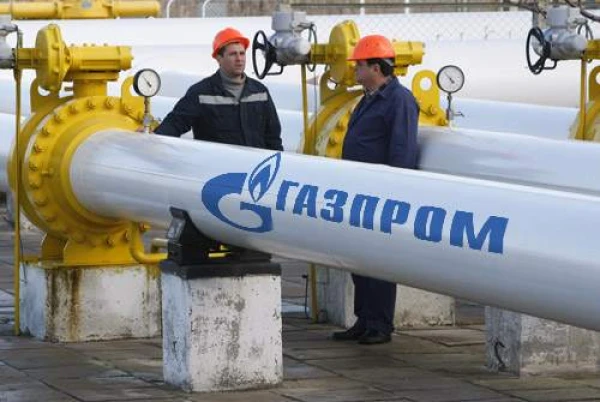
The Ukrainian detained in Italy in the Nord Stream sabotage case, Sergey K., has ended his hunger strike, which he declared in protest against the conditions of his detention in prison. Italian authorities promised to respect his rights, DW reports.
49-year-old Ukrainian Sergey K., detained in Italy as a suspect in the explosions on the "Nord Stream" and "Nord Stream 2" pipelines, has ended his hunger strike, which he declared in protest against the conditions of his detention in prison and violations of his basic rights. This was reported on Tuesday, November 11, by the Ukrainian's lawyer, Nicola Canestrini, to the ANSA news agency.
According to the lawyer, during his protest, Sergey K. lost nine kilograms. He decided to end the hunger strike after Italian authorities promised to fully respect his rights, particularly regarding his dietary needs.
In a statement from prison, Sergey K. thanked everyone who supported him and showed solidarity and care, ANSA reports.
The Ukrainian ombudsman pointed to the critical health condition of Sergey K.
Canestrini reported on November 4 that his 49-year-old client had been refusing food since October 31 and intended to achieve the respect of his basic rights through the hunger strike. The Ukrainian demanded, in particular, the right to "adequate nutrition, a healthy environment, and decent conditions of detention, as well as equal treatment with other inmates regarding family visits and access to information."
Since Sergey K.'s detention last August, he has not been provided with the necessary diet, which has led to a deterioration in his health, the lawyer stated. The Ukrainian is being held in a high-security prison in northern Italy.
On November 8, the Ukrainian Parliament's Commissioner for Human Rights, Dmytro Lubinets, demanded that the Italian authorities protect the rights of their compatriot. The ombudsman indicated that Sergey K. was in critical health condition. "The detention of Sergey in a high-security colony and in inadequate conditions is unacceptable and contradicts the Convention on the Protection of Human Rights and Fundamental Freedoms!" Lubinets emphasized at that time.
Italian Court Ordered Extradition of Ukrainian to Germany
On October 27, an Italian court approved the extradition of Sergey K. to Germany, Canestrini reported. The defense intends to appeal the ruling to the Supreme Court of Italy - the country's highest judicial authority, the lawyer stated.
The Supreme Court in Rome had already overturned the lower court's decision regarding the extradition of the Ukrainian to Germany on October 15 and sent the case for reconsideration to another court. The Court of Cassation in the Italian capital justified its decision by stating that the rights of the suspect were violated during the detention and subsequent trial, Canestrini reported at that time.
When the next hearing in Rome will take place is still unclear. The lawyer stated that he does not intend to give up, "until the court addresses issues of international law and human rights in this case," dpa writes. If the case goes to court in Germany, it will likely take place in Hamburg. The Federal Prosecutor's Office in Germany accuses Sergey K. of complicity in the explosions and subversive activities against the constitutional order.
The Suspect Was Detained at a Seaside Resort in Italy
Sergey K. was detained on the Adriatic Sea coast, where he was vacationing with his family. According to German investigators, Sergey K. led a group of seven people, including four divers. To carry out the sabotage plan, they rented a yacht named Andromeda in Germany and set sail for the Baltic Sea.
Another suspect in the pipeline explosions case, 46-year-old Ukrainian Volodymyr Zh., who was previously detained in Poland, was refused extradition to Germany by a court in Warsaw in mid-October. At the same time, he was ordered to be released from custody, and Judge Dariusz Lubowski noted that the Berlin extradition request "does not deserve consideration." Polish Prime Minister Donald Tusk called the court's decision correct.
The explosions on the "Nord Stream" and "Nord Stream 2" pipelines in the fall of 2022 caused a wide international resonance. Six months after the start of Russia's war against Ukraine, several underwater explosions near the island of Bornholm in the Baltic Sea destroyed the pipes. Later, leaks were found in three of the four strands of the pipeline, making gas transportation impossible.













